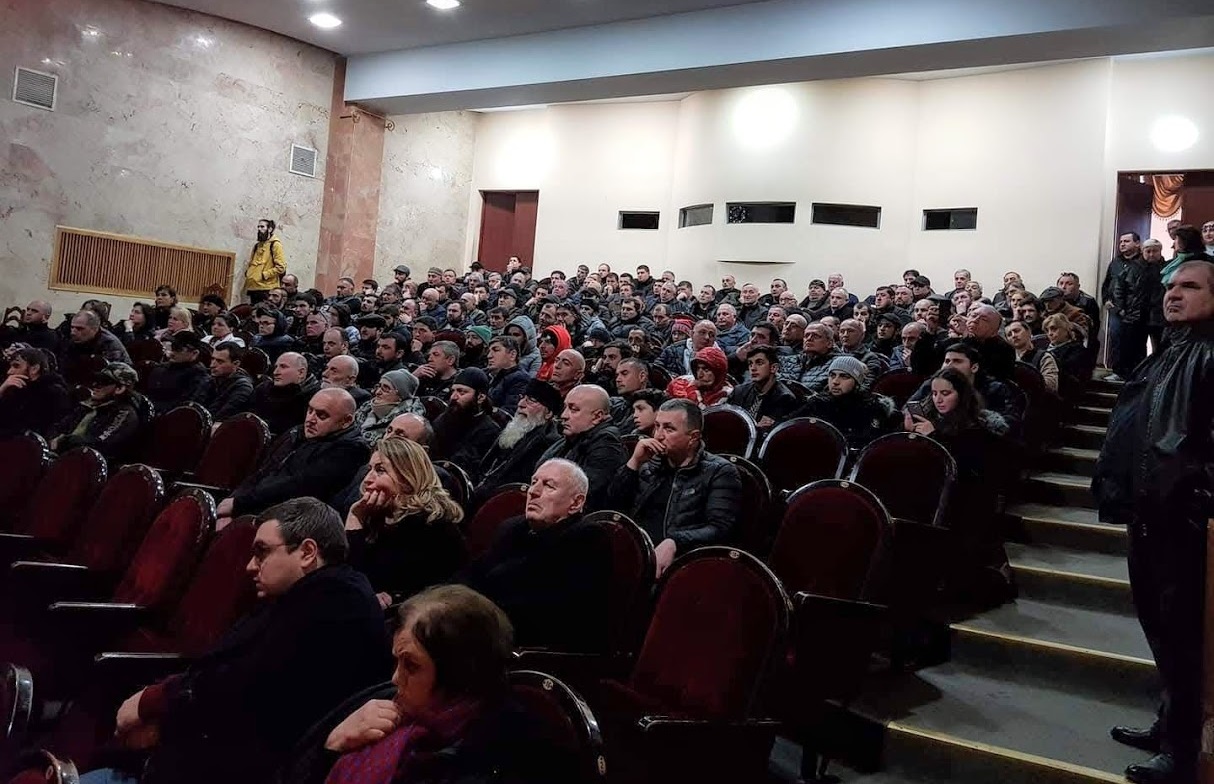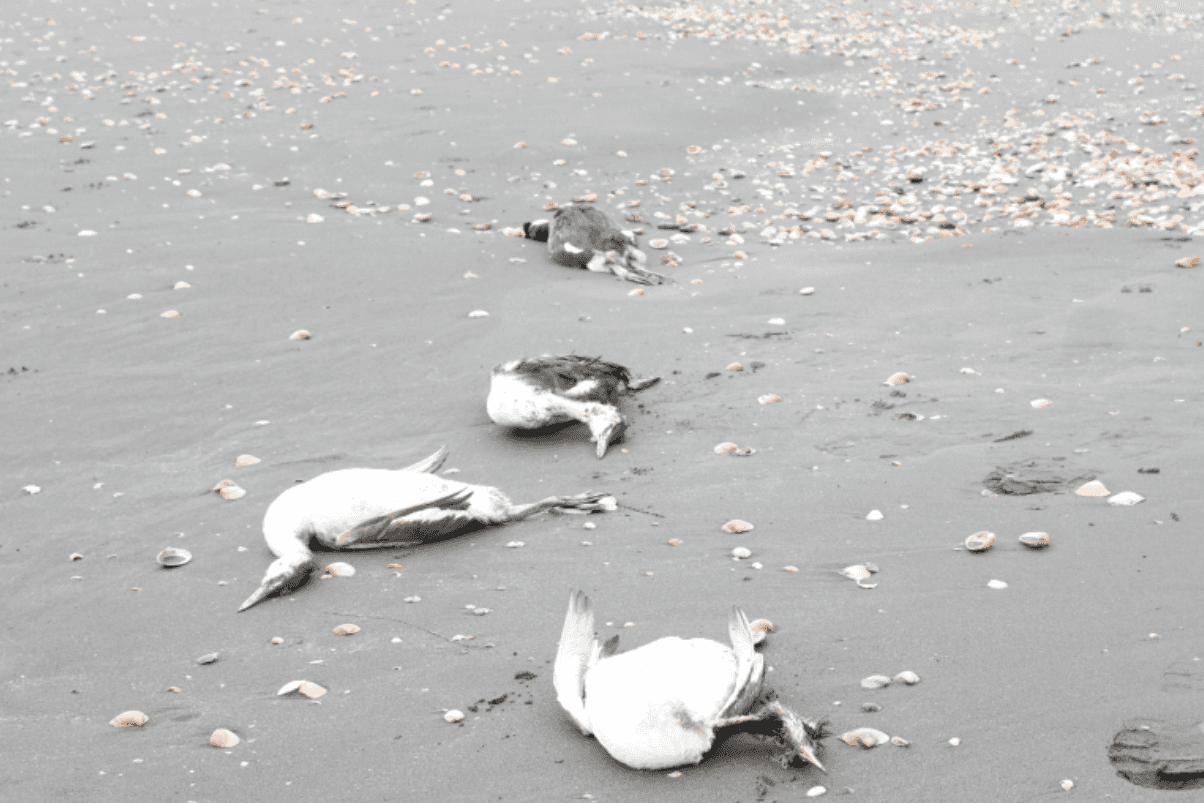

Over 200 people gathered in the Georgian capital Tbilisi on Sunday for a meeting in opposition to a gold mine in the village of Ieli, in the historical mountain region of Svaneti.
People from Svaneti, over 200 kilometres from Tbilisi, were joined at the meeting in Tbilisi’s Muza Cultural Centre by environmental activists. Protesters told the Georgian Public Broadcaster that mining activities in Upper Svaneti, which according to them used a cyanide solution in extraction, put the region at risk of ‘ecological catastrophe’.
According to environmental group the Green Alternative, in 2005, mining company Optical Systems Inc was granted a 15-year licence for the exploration and extraction of gold over a 390 square kilometre area of Upper Svaneti.
In 2016, the Department of Environmental Supervision fined the company for several violations in Svaneti but did not identify the use of gold cyanidation.
Giorgi Dadvani, a resident of the largest town in Svaneti, Mestia, who participated in the meeting, told OC Media they collected signatures for a petition demanding the authorities ban industrial gold mining in the region. He said they would also address parliament, the president, ruling party chair Bidzina Ivanishvili, and the Georgian Orthodox Church in their petition, asking them to intervene.
‘They are intervening in Svaneti’s nature aggressively, using mostly toxic chemicals and digging masses of soil. Considering the vast area they have a licence for, the company can basically excavate any spot in Svaneti, be it a tower or any cultural monument’, Dadvani said.
He said the Svans swore on religious icons to oppose the mining. ‘We want their licence revoked’, Dadvani said, adding that gold mining and hydropower plants would ‘turn Svaneti into an industrial zone’.
[Read on OC Media: Activists fighting Georgia’s hydropower boom complain of exclusion and repression]
No public involvement
Optical Systems started active explorative work in Svaneti only in May 2016, facing strong backlash from local residents; protesters forced the company to halt work several times.
The protests peaked in Spring 2017 after the mining company dug large gravel pits near Ieli, with local people accusing Optical Systems of using cyanide for extraction.
In October 2018, activists in Ieli began guarding the village and preventing Optical Systems from entering. In November, a group of local residents under the name the Svaneti Youth Movement wrote on their Facebook page accusing the Georgian Dream–led government of neglecting their interests after the presidential elections.
According to Nino Gujaraidze, the head Georgian environmental group the Green Alternative, when the company was first granted a license in 2005, an environmental impact assessment (EIA) was not required.
On 25 January 2019, Optical Systems submitted a ‘scoping report’ to the environmental protection ministry, asking for environmental approval to set up a gold processing machine near Ieli.
Approval would require that an EIA is carried out including public consultations.
According to Gujaraidze, the government have so far failed to organise a public hearing, which should have been announced within 15 days of the scoping report, and ten days in advance.
The Ministry of Environmental Protection and Agriculture confirmed to OC Media that an environmental impact study was being conducted but declined to comment further.
Mestia resident Giorgi Dadvani told OC Media there had been no communication from the authorities to discuss the issue so far.
He said that residents of Upper Svaneti had no intention of letting the company start extraction work.
Gold extraction by Optical Systems has also been controversial because of its foreign workforce, with local activists claiming that Chinese workers were brought in to carry out the work.
According to Gujaraidze, the company had relied on a Chinese workforce initially but later employed local workers too. Dadvani, while confirming that some local people were now employed by the company, said this was ‘only a few’.
Some participants of 24 February’s meeting told Reginfo they were afraid the controversy around the mine could drive a wedge between them and local residents that the company had hired.
In a 2016 report, DF Watch noted the lack of transparency in the ownership of Optical Systems Inc, which was incorporated in the USA and is currently owned and managed from the Caribbean state of Saint Kitts and Nevis, a tax haven.









